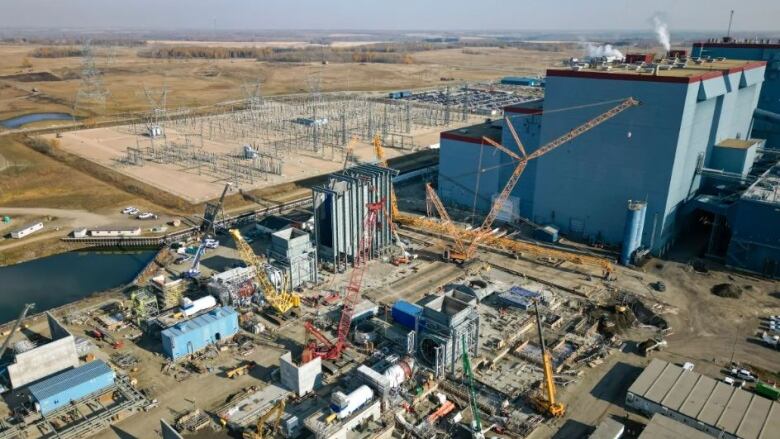Financial risks of novel technology likely derailed Alberta carbon capture project, analysts say
Capital Power has shelved $2.4B Genesee project southwest of Edmonton

A corporate decision to mothball Canada's largest carbon capture and storage plan is likely the result of financial uncertainty and technological risks, analysts suggest.
Capital Power's decision not to pursue its $2.4-billion Genesee project shouldn't be seen as a signal of more cancellations to follow,said Scott MacDougall of the Pembina Institute, a clean energy think tank.
"I think [Genesee]is different enough that I wouldn't extrapolate too much," MacDougall said.
But Sara Hastings-Simon, who studies energy transition at the University of Calgary, said the backtracking underlines that, unlike some decarbonization strategies, carbon capture adds cost.
"When some people say this is going to be a big part of our decarbonization solution, the question is who's going to pay for it."
Thomas Timmins, head of energy practice for the law firm Gowling WLG, called Capital Power's decision a reminder that carbon capture technology is still new.
"It is not where the proponents of the technology might wish it were," Timmins said.
Carbon capture separates climate-changing gases such as carbon dioxide from exhaust and sequesters it deep underground. Industries from cement manufacture to the oilsands consider it one of the most promising ways to reduce their carbon emissions.
A novel technology
Capital Power announced Wednesday it would no longer pursue carbon capture at its Genesee power plant near Edmonton because the economics no longer work.
The decision removed Canada's largest such project from the books. Genesee would have stored three million tonnes of carbon dioxide a year about three times the storage rate of Shell's Quest project.
In a conference call with analysts Wednesday, Capital Power CEO Avik Dey said the technology has a future.
"I do feel strongly that carbon capture and sequestration works," he said.
But several factors convinced the company to pull the plug the uncertainty over how much Capital Power could earn from the carbon credits the project would generate, the amount of carbon price it would avoid and the cost per tonne of the captured carbon.
"I wouldn't say it's any one thing," he said. "We need all of it to work.
"What will unlock carbon capture and storage for natural gas is the [cost per unit of carbon] coming down such that we can work within whatever regulatory framework exists. We're just early."
Capital Power would have been the first natural gas plant to use the technology. That creates risks and adds costs, MacDougall said.
"There would be some extra costs relative to the second or third project. Costs will come down for future deployments."
The process is better understood in other applications, he said.
"[Carbon capture] on gas turbines is quite different than [carbon capture]on gas boilers."
Another risk is that other carbon capture projects planned for Alberta could flood the market for the credits carbon capture would generate, lowering their value.
Hastings-Simon said Alberta could address that risk by tightening up its industrial carbon emissions program.
Making credits harder to earn would ensure their continuing value, she said. So would increasing the market by lowering emissions caps for other industries.
"If you're willing to do that as a government, you can pretty much control that risk."
Governments can also guarantee companies an adequate floor price for the carbon credits they generate.
But failing a groundbreaking technological innovation, Timmins said carbon capture will continue to need public support for projects to go ahead.
"It hasn't reached the level where it's commercially viable, yet," Timmins said.
"What's needed? Either a breakthrough or government money."
WATCH| Could carbon capture help Canada meet its climate objectives?













_(720p).jpg)


 OFFICIAL HD MUSIC VIDEO.jpg)
.jpg)



























































































